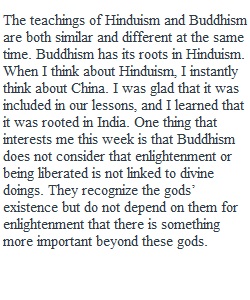


Q Discuss the following; post your initial response by Thursday night at 11:59 pm and then respond to at least two of your group members before Sunday at 11:59 pm. Analyze the basic ideas of death and the afterlife as they develop in Buddhism, and Traditional Chinese Religion. Discuss the similarities and differences concerning karma, samsara (rebirth), and moksha/nirvana between Hinduism and Buddhism. What do you make of the Daoist (Taoist) alchemical tradition?
View Related Questions